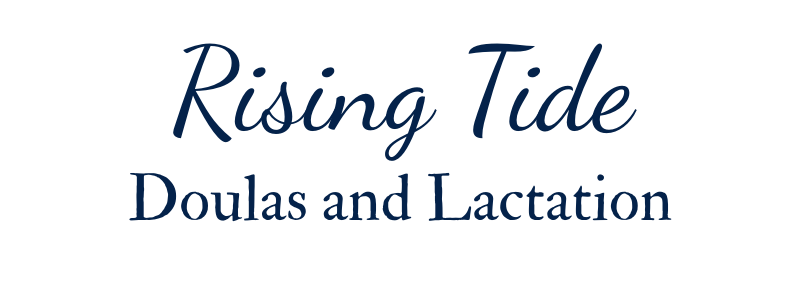Since we are heading into World Breastfeeding Week, I obviously want to talk about breastfeeding and chestfeeding. (If you know me in person, you probably know that's not limited to just the first week in August; I kiiiind of talk about it all the time.) One of the things I like to talk about with this subject is what I call our 'Cultural Knowledge Deficit' around breastfeeding. As a mainstream culture, Americans know very little about how breastfeeding works or what it looks like or what's normal. largely because we've had nearly two generations of parents who didn't breastfeed. A lot of this has to do with aggressive (and often unethical) marketing of baby formula, as well as cultural norms. When I asked my grandmother if she breastfed my mother and her siblings, she told me that she had wanted to, but the doctor told her not to; it was for poor people and that formula was better anyway.
Our medical culture isn't really set up to support breastfeeding very well, either; few medical professionals get comprehensive training about how to manage or support breastfeeding, which means that unless you are very lucky or have a good lactation professional on hand (ahem. You know where to find me.), you may have a hard time getting good support.
So this all sounds pretty bleak, huh? Well, the good news is that every year there are more lactation professionals entering the field. We are working to advocate for good support for those who WANT to breastfeed, because new parents deserve that. And in the meantime, here are some ways to really set yourself up for a great breastfeeding experience:
1. Take a prenatal breastfeeding class. Seriously. Do it. This is one class that so many expectant parents skip, but guess what? Birthing class is important, but birth also happens automatically. Breastfeeding? Not automatic. Because we live in a culture that knows so little about nursing, it's really important to learn realistic expectations, what's normal, and when (and how) to get help. We offer a breastfeeding class for folks on Cape Cod, the South Shore, and Boston, and it's super fun, but you can take one at your local hospital, from a local lactation professional, or even probably online somewhere. If you don't know where to start, check out zipmilk.org to find something near you.
2. Do your research. Like anything worth doing, breastfeeding is worth preparing for. And don't just read about why breastfeeding is great; check out really good resources like Kellymom (she has a whole collection about the early days of breastfeeding). I also recommend Nancy Morhbacher's youtube channel and articles like this one. If you're a client of ours, you have the Harbor; utilize it. Knowledge is power, friends.
3. Go to a breastfeeding support group. Yes, before your baby comes! Many expectant parents don't think to do this, but it's a great way to talk to new parents, see what it looks like to breastfeed, and scout out a group where you'll be comfortable showing up unshowered with a fussy baby (hint: you should be able to do this at any baby group). If you're local, you can come to mine in Eastham on Tuesdays. You'll get to meet the lactation professional who facilitates the group and ask any questions you might have.
4. Build your postpartum support network. Yes, you can do it on your own. But why would you want to? Being the parent of a brand-new baby is hard, lonely work, and if you can possibly shore up your web of support, it's a really good idea. Think about who is going to help you out after you have your little one. Who can bring you meals? Can someone set up a mealtrain for you? Do you have a church or school community that will support you? Do you have any supportive local friends (bonus points if they've had a baby recently!) you can call when you're having a rough day? And practice asking for help, even if it means just posting some links about how to be a great postpartum helper.
5. Have the number of a lactation professional on hand, and use it. Go on zipmilk and find a local lactation professional, or ask other local moms who they recommend. If you've already gone to a local group, you'll have met someone in person. Keep their number on your fridge, and if you have questions, call them. Or email me. But please don't be afraid to reach out for help; a good LC shouldn't judge wherever you are on your journey and should be able to at least get you pointed in the right direction. And trust me, it's never a bother; the vast majority of us do this because we love it.
So I hope this gets you off to a great start. For those who are nursing or have nursed, what would have helped you be prepared? Is there something I'm missing that you wish you had known? For those who are preparing to nurse, what questions do you have?
Liz Libby is an International Board Certified Lactation Consultant and Certified Lactation Counselor, as well as a CAPPA Certified Childbirth Educator. She lives in Brewster with her wild boys and a dog. Find her at info@risingtidewomen.com















